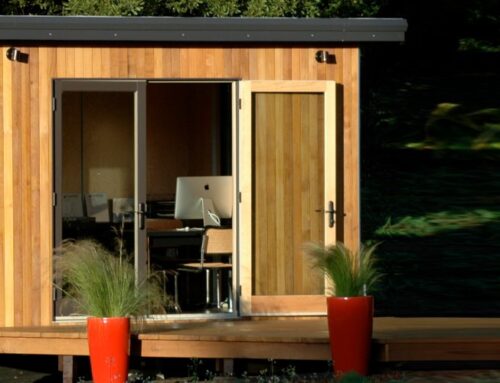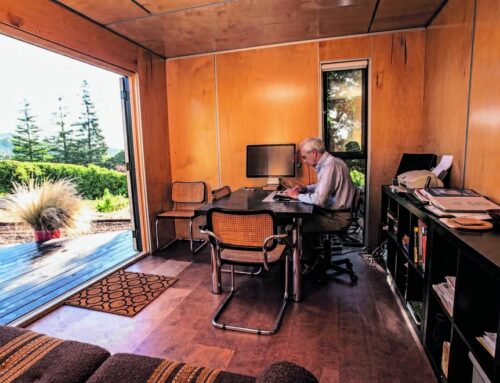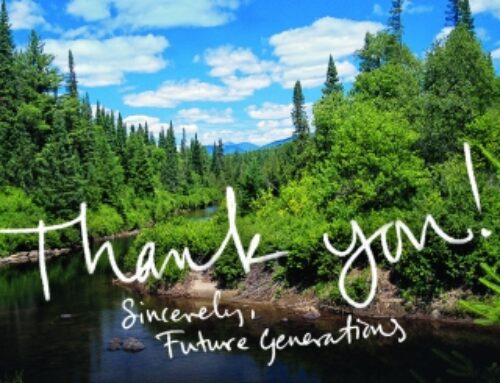 Answer: As Green as we can make it!
Answer: As Green as we can make it!
Designing for sustainability is not a binary activity, everything involves trade-offs. In an ideal world, we would only use materials that were affordable, renewable and produced locally that was easy to assemble, had structural strength and thermal stability, used no paint or glue, that needed no maintenance, did not deteriorate, were waterproof, fireproof and immune to insect and animal damage and were 100% recyclable at the end of life. I do not know of any such a material, but will keep looking. In the meantime, we offer the following:


Roofing: We prefer to use a single sheet membrane roof that is light in color (Cool Roof), reflecting the sun, has a 15 year warranty and requires no maintenance. The membrane is very fast to install saving on site resources and reducing cost.
Windows and Doors: Our first choice is an aluminum product with an integral thermal break with double low-e glass, which is manufactured locally in the San Francisco Bay Area. The aluminum is powder coated in the factory, needs no maintenance and never needs painting. These windows and doors are highly efficient.
Exterior Wall Finish: We offer a range of options, but the most sustainable are the cement board panels, which are fire-resistant, waterproof, and resistant to insect attack and can be installed with self-coloring that never need painting.
Interior Finishes: We recommend cork or bamboo for the floor (both renewable). Walls and ceiling can be left unfinished on YardPod SP projects, or can be painted or have drywall or another board applied. YardPod ST projects need either drywall or an MDF (Multi Dimensional Fiber) board applied. We prefer not to use drywall because it is a labor-intensive multi-step process that introduces a lot of moisture into the building.
Our glues and resins contain no added formaldehyde, and none of our finishes contains VOCs (Volatile Organic Compounds). If we have a wood exterior finish, we prefer to use a no-VOC soy-based stain.
The site: One often overlooked element of sustainability is the site work itself with disruption, noise, pollution and waste. We prefabricate as much of the YardPod off site as possible to minimize time on site during construction. We offer galvanized spike foundations, which are fast and efficient and we aim to complete a YardPod in days, not weeks or months.
For DIY YardPods, which we ship across the country, we only ship the prefabricated wall panels that are light and easy to handle. We do not ship additional materials such as doors and windows, which can be purchased locally without additional shipping costs. The only exception is the option to ship our roof membrane that is not available to individual buyers, they are shipped directly from the manufacturer to the YardPod customer, avoiding additional transportation and cost.
Operationally, we operate as a virtual company with no facilities, no employees and almost no overhead. We out-source manufacture to order, so have no inventory, no spoilage and no waste. We communicate electronically and avoid the need to print on paper (except when dealing with 19th century Building Departments!).

Malcolm Davies, YardPod Guy. md@yardpods.com



I am interested in a 12X14 pod as a guest room connected to our existing dwelling. Could you send me specs that include, as a minimum, standard floor plan and elevation dimensions? Thanks. Glen Haney
Glen:
Thank you for your interest in a guest room connected to your existing dwelling. We prefer to focus on stand-alone structures, preferably 120 square feet or under that, in most jurisdictions, do not need permits. As a living unit, and as it will be connected to your existing dwelling, your building will need a full set of permit drawings including structural and architectural. While I really appreciate your interest in a YardPod, I recommend that instead, you work with a local architect and/or a local licensed building contractor.
I wish you success with your project.
best regards
Malcolm (YardPod Guy)